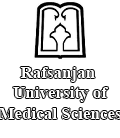Research Priorities of the Physiology-Pharmacology Research Center:
1. Investigating the impact of phytomedicinals on the central nervous system and autoimmune disorders.
2. Examining the underlying mechanisms associated with multiple sclerosis and the corresponding animal model known as experimental allergic encephalomyelitis (EAE).
3. Exploring efficacious strategies for treating strokes by studying the relevant mechanisms involved.
4. Elucidating the mechanisms governing learning capacity, short-term memory, and tactile memory.
5. Analyzing the electrical characteristics of nerve cells through fundamental investigations.
6. Assessing the roles played by diverse neurotransmitters within the brain.
7. Undertaking both foundational and applied research relating to renal diseases and circulatory issues.
8. Executing fundamental experiments focused on carcinogenesis and its accompanying molecular processes.
9. Performing primary investigations into addiction's underlying principles and mechanisms.
10. Carrying out both introductory and preparatory studies pertaining to botanical medication synthesis.
Research Foci of the Physiology-Pharmacology Research Center:
1. Elderly Health: Exploration of physiological changes occurring during the aging process from a pharmacological perspective.
2. Cerebrovascular Disorders: Investigation into stroke pathophysiology and therapeutics targeting stroke-induced neurological impairments.
3. Multiple Sclerosis Disease and EAE Model: Comprehensive study aimed at identifying novel treatments against MS and delineation of the mechanisms responsible for EAE development.
4. Neurodegenerative Disorders: Pharmacological analysis of neuroprotective agents capable of alleviating symptoms caused by Parkinson’s disease.
5. Inflammation and Immunity: Fundamental investigation into immunopathology contributing to the etiopathogenesis of rheumatoid arthritis.
6. Metabolic Disorder: Analysis of anti-diabetic drugs, their targets and modes of action.
7. Electrophysiology: Examination of ion channel function, synaptic transmission and neuronal plasticity utilizing advanced technologies such as patch clamping or optogenetics.
8. Psychiatric Disorders: Study of anxiolytics, antidepressants, mood stabilizers, and other psychotropic medications used to treat psychiatric illnesses.
9. Memory and Learning: Investigation into cognition and cognitive enhancement therapies using behavioral tests coupled with brain imaging techniques.
10. Seizure Disorders: Development of novel anti-convulsant therapies based upon mechanistic insights obtained via the use of animal models.
11. Muscle Fatigue: Identification of factors causing muscular weakness and possible interventions to mitigate fatiguability.
12. Kidney and Blood Circulation: Studies examining the functions and dysfunctions of the urinary tract along with vascular biology.
13. Addiction: Basic and translational studies addressing drug abuse and dependence while exploring potential pharmaceutical remedies.
14. Cancer: Preliminary research on various types of malignancies aiming to uncover cellular signaling pathways critical for tumorigenesis.
انتخاب حالت کور رنگی
سرخ کوری سبز کوری آبی کوری سرخ دشوار بینی سبز دشوار بینی آبی دشوار بینی تک رنگ بینی تک رنگ بینی مخروطیتغییر اندازه فونت:
تغییر فاصله بین کلمات:
تغییر فاصله بین خطوط:
تغییر نوع موس:
